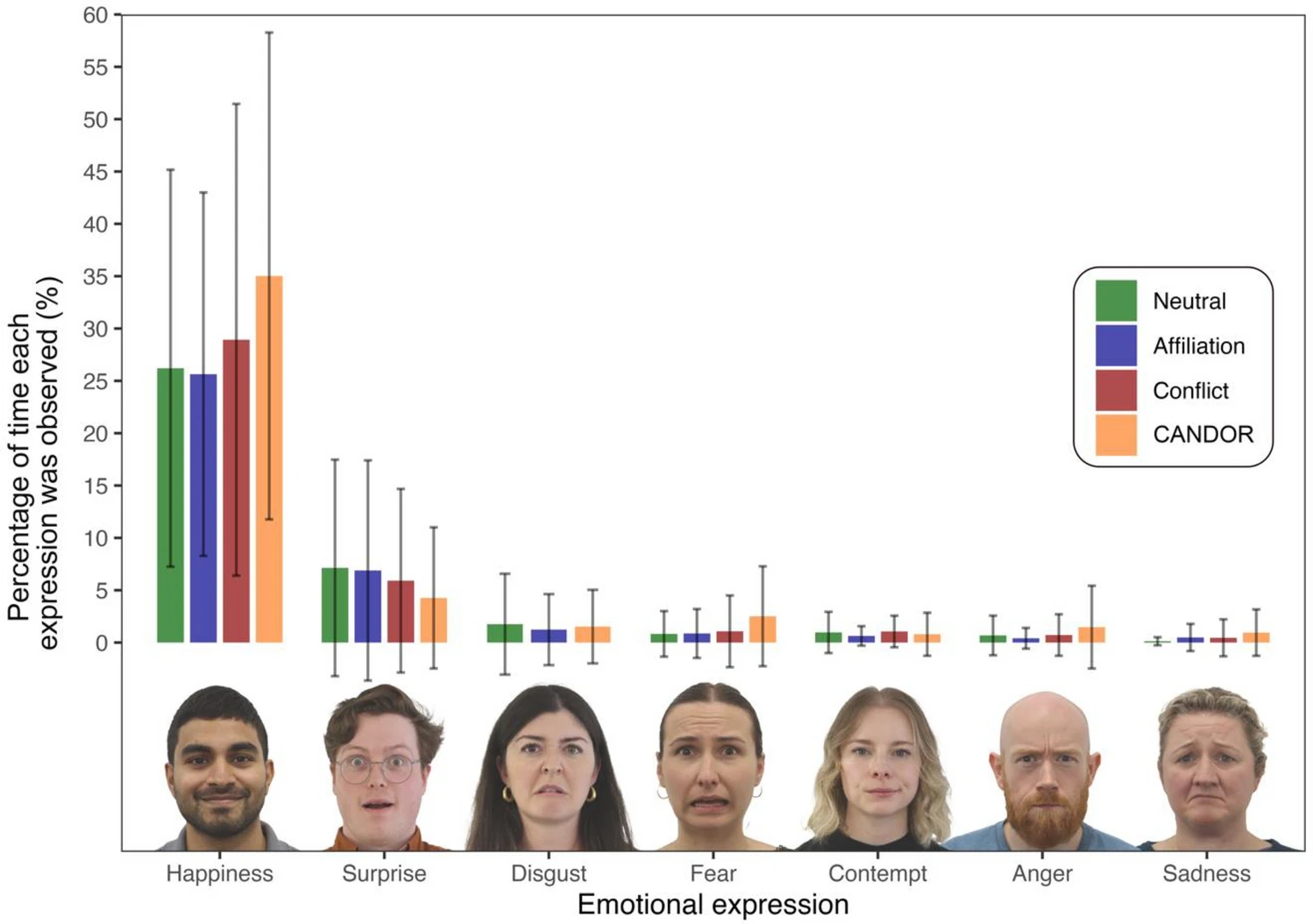People adopting this attitude are more appreciated
Published by Cédric,
Article author: Cédric DEPOND
Source: Scientific Reports
Other Languages: FR, DE, ES, PT
Article author: Cédric DEPOND
Source: Scientific Reports
Other Languages: FR, DE, ES, PT
Follow us on Google News (click on ☆)

Illustrative image Pixabay
Researchers first conducted semi-structured video conferences with 52 participants to observe their natural reactions in varied scenarios. These conversations included moments of listening, humor, embarrassment, and conflict.
Participants were also asked to keep a still face while their interlocutor tried to make them react. Then, these same participants recorded short videos trying to achieve various social goals, such as appearing friendly or threatening, or disagreeing without causing dislike.
More than 170 evaluators viewed these video excerpts to rate the participants' emotions and facial expressions, allowing the measurement of their readability and likability. Each participant's facial expressiveness was analyzed using the FACS (Facial Action Coding System), a tool for measuring facial muscle activity.
To verify these results on a larger scale, researchers then analyzed unscripted video conversations between 1,456 strangers from an existing database. Conversation partners rated their mutual appreciation. The results show that expressive participants were rated more favorably by both their interlocutors and independent evaluators.

The study's conclusions indicate that individuals with greater facial expressiveness are not only perceived as more likable but are also more understandable. They succeed better at reaching their social goals and negotiating in conflict situations. For example, during a simulated negotiation where a bad offer was presented, expressive and conciliatory participants achieved better results.
Eithne Kavanagh, a researcher at Nottingham Trent University and principal author of the study, emphasizes the importance of these findings: "Our results show that facial expressiveness is linked to positive social outcomes. More expressive people are better at attracting social partners and establishing relationships."
Bridget Waller, co-author of the study, adds: "This research is significant in evolutionary terms because it may explain why humans developed more complex facial expressions than any other species. It helps us create stronger bonds and navigate the social world effectively."